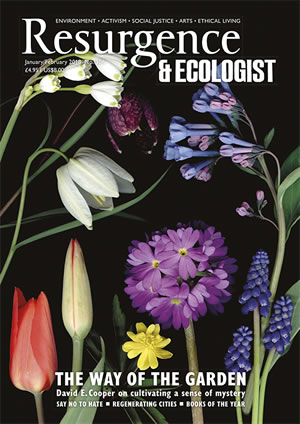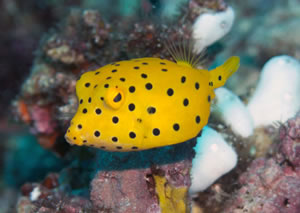Anxiety has always been part of my life. It’s mostly somewhere out of sight, but it’s always lurking and I have had to learn to deal with it.
My favourite tactic is to think of a fish. A yellow boxfish, to be precise. Cuboid and black-spotted like obese cheetahs, they live in the tropics and seem to spend their days unhurriedly bumbling around the coral reefs that I occasionally visit as an enthusiastic, if unskilled, scuba diver. When anxiety threatens to trip me up, I think of a boxfish quietly nosing around the coral with no interest in whatever is worrying me. The contrast is usually enough to see off my worries.
So I’ve been hit in the gut by the news that climate change threatens every one of the world’s top coral reefs. The warming they have experienced so far – already enough to bleach reefs worldwide – is much less than they are likely to face unless the world soon cuts its carbon emissions to zero. Within my life, the boxfish’s world, my mental refuge, may cease to exist.
This is one of the first times that climate change has hit me emotionally. That might seem strange: analysing climate change is part of my job and I have just written a book about it. But I rarely look up from the details and remember why it matters to me. It took a threat to something personal to make me emotional about climate change. It was the thought of one obscure fish that made the threat seem real.
Those of us worried about climate change often forget about emotion. We focus on the big and abstract, and forget about the small and personal. We warn about the melting Arctic and average global temperature change. Those things matter – and a few people, like me, may happen to have a personal connection with some distant place under threat. But most of the time warnings about abstract concepts and distant places have little emotional impact.
This spells trouble: if few people in richer countries have a visceral reaction to the threat of extreme warming, there is unlikely to be widespread support for the measures that will be needed to prevent it.
Few people really object to wind and solar power replacing coal, or to fridges and light bulbs becoming more efficient. Those changes save money or clean up our air, or both. But the time will come when measures to cut emissions will have to be more intrusive. The ways many people travel and the things we eat will have to change. So long as most people think of climate change as distant and impersonal, it’s hard to see much enthusiasm for changes to day-to-day life that don’t offer immediate tangible benefits.
It was the threat to the yellow boxfish’s home that made climate change seem real to me, but most people would be as unlikely to feel emotional about a tropical fish as they would at the news of a melting ice sheet. The challenge is to find the personal details in global climate change that tell a story about why we should all care.







